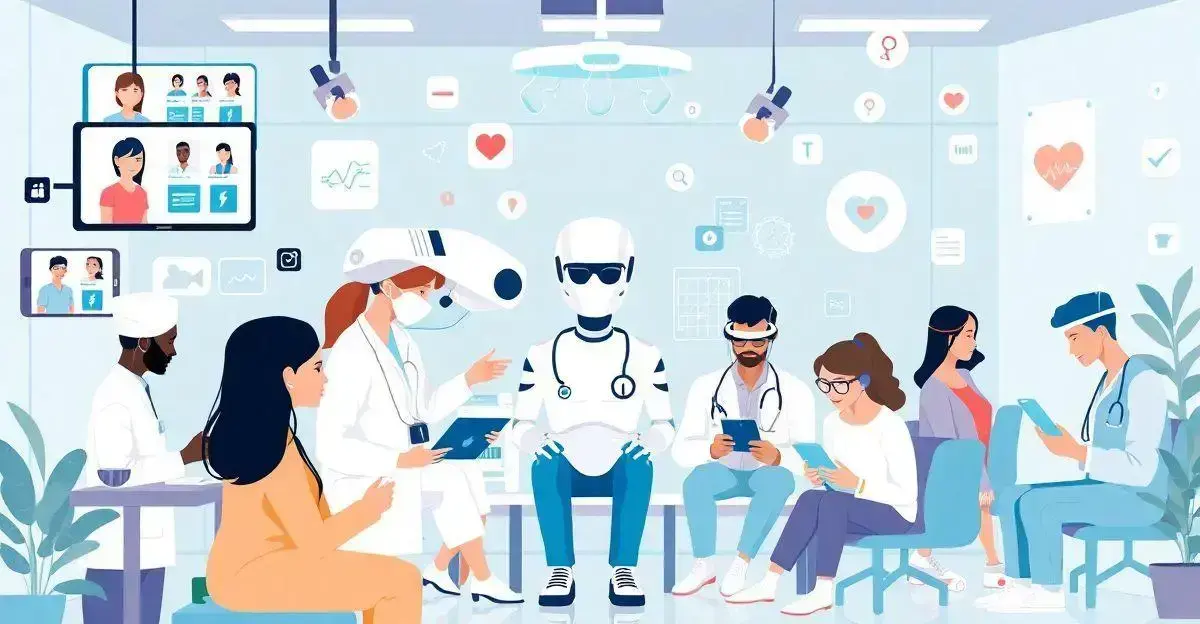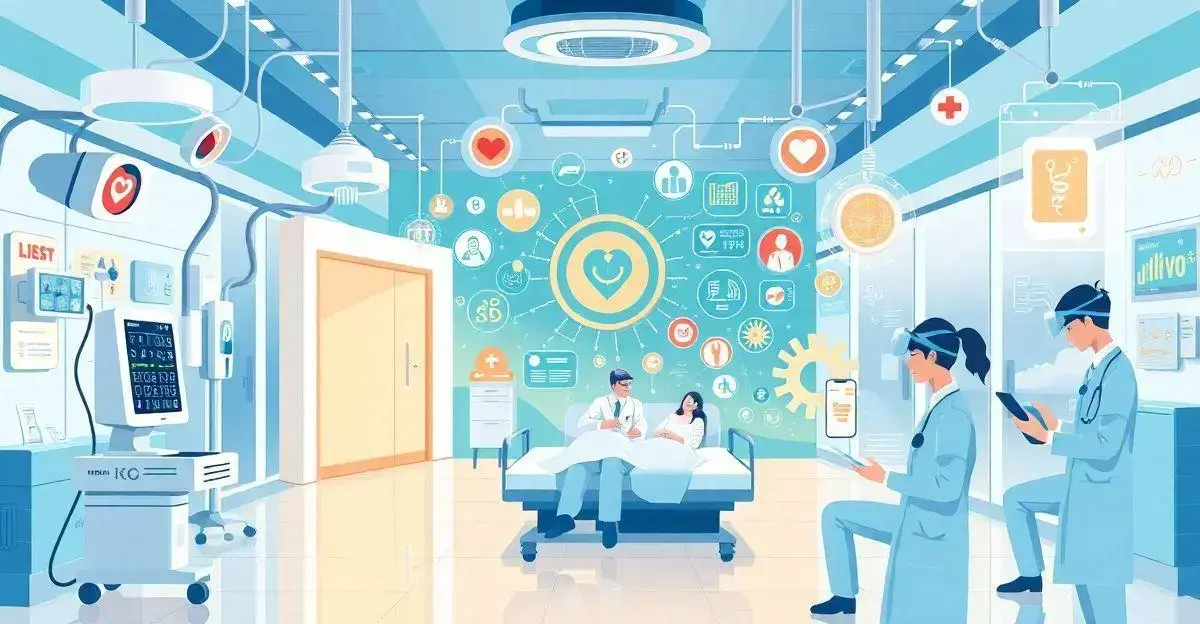Therapeutic technology is transforming healthcare by offering innovative tools that enhance treatment and patient care. From telemedicine to wearable devices, these technologies provide more accessible, personalized options for patients and healthcare providers alike.
By enabling remote consultations and real-time health monitoring, therapeutic technology improves patient outcomes and empowers individuals to manage their health. These tools also streamline communication and promote proactive care.
Curious about how these technologies work and their future impact? Keep reading to explore the types and benefits of therapeutic tipe.
What is Therapeutic Technology?
Therapeutic technology refers to various tools and methods that enhance medical treatment and patient care.
Some common applications include:
- telemedicine
- wearable devices
- digital health platforms
The benefits of therapeutic technology are numerous:
- Enables remote engagement with healthcare providers, especially for those in rural or underserved areas.
- Allows monitoring of health metrics at home, such as heart rate and blood sugar levels.
- Promotes personalized treatment plans, leading to more effective treatment.
- Innovative approaches like virtual reality for pain management and rehabilitation enhance rehabilitation practices.
In conclusion, the integration of advanced technologies into traditional healthcare leads to improved access, enhanced patient engagement, and better health outcomes.
Types of Therapeutic Technology

There are various types of therapeutic technology that enhance patient care and treatment. One common type is telemedicine, which allows patients to consult healthcare providers remotely, making it convenient and accessible.
Another type is wearable devices, such as fitness trackers and smartwatches, which monitor health metrics like heart rate and activity levels.
Additionally, digital health platforms offer tools for managing health records and connecting patients with specialists.
Each type plays a vital role in improving health outcomes and patient engagement, making healthcare services more efficient and tailored to individual needs.
Benefits of Using Therapeutic Technology
The use of therapeutic technology offers many benefits to patients and healthcare providers alike. One major advantage is improved access to healthcare services, allowing patients to receive care from the comfort of their homes through telehealth options.
Additionally, therapeutic technologies can lead to better health outcomes by providing real-time monitoring and personalized treatment plans. With tools like wearable devices, patients can track their health metrics, encouraging proactive healthcare management.
Moreover, these technologies can enhance patient engagement and education, helping individuals understand their health conditions better.
Overall, incorporating therapeutic technology into healthcare systems not only boosts efficiency but also enhances the overall patient experience.
How Therapeutic Technology Works

Therapeutic technology works by integrating advanced tools into healthcare to improve patient care. By using data analytics, healthcare providers can tailor treatments to individual needs.
This includes monitoring patient health through wearable devices, which send real-time data to medical professionals. These devices track vital signs like heart rate and activity levels, allowing for immediate interventions if necessary.
Telehealth solutions enable virtual consultations, giving patients convenient access to healthcare services. Additionally, therapeutic technology often incorporates AI algorithms that assist in diagnosing conditions by analyzing large datasets quickly. This allows providers to make informed decisions, improving overall health outcomes and enhancing the patient experience.
Integrating Therapeutic Technology into Healthcare
Integrating therapeutic technology into healthcare involves utilizing advanced tools to enhance patient outcomes. Healthcare providers must first assess the needs of their patients to identify which technologies would be most beneficial.
For example, telemedicine can be integrated to offer virtual appointments, making access to care easier for many patients. Also, wearable devices help track vital signs continuously, providing valuable data for doctors.
It’s essential to train staff on how to use these technologies effectively to ensure smooth implementation. Additionally, securing patient data and maintaining privacy must be a top priority to build trust.
By strategically implementing therapeutic technology, healthcare institutions can significantly improve efficiency and patient satisfaction.
Future Trends in Therapeutic Technology

Future trends in therapeutic technology are set to transform healthcare. One major trend is the increased use of artificial intelligence to personalize treatment plans. AI algorithms can analyze patient data to recommend tailored therapies that improve outcomes.
Additionally, the rise of telehealth services will enhance accessibility, allowing patients to consult with healthcare providers from home.
Another trend involves the expansion of wearable health devices, which will become more advanced in monitoring health metrics continuously.
Innovations like virtual reality for therapy will also grow, offering new ways to manage pain and anxiety.
As technology advances, these trends will make healthcare more efficient and responsive to patients’ needs.
Case Studies: Success Stories
Case studies highlight the impact of therapeutic technology on patient outcomes. For instance, a hospital implemented a telehealth platform that allowed patients to receive care remotely. This resulted in a 40% reduction in emergency room visits.
Another success story comes from the use of wearable devices in managing chronic diseases. One diabetes clinic found that patients using continuous glucose monitors were able to maintain better control over their blood sugar levels.
These case studies show that adopting therapeutic technology can lead to significant improvements in health management and patient satisfaction.
Frequently Asked Questions
What is therapeutic technology?
Therapeutic technology refers to tools and methods that enhance medical treatment and patient care.
How does telemedicine benefit patients?
Telemedicine provides remote access to healthcare, allowing patients to consult professionals from home.
What are wearable health devices?
Wearable devices are technology like fitness trackers that monitor health metrics in real-time.
How does AI improve healthcare?
AI analyzes patient data to personalize treatment plans, resulting in better health outcomes.
What are the advantages of using digital health platforms?
Digital health platforms streamline patient management by offering tools for health records and communication.
How can healthcare providers integrate therapeutic technology?
Providers can assess patient needs, implement selected technologies, and train staff for effective use.